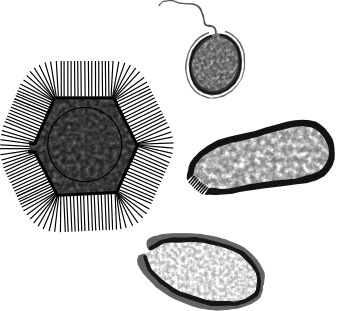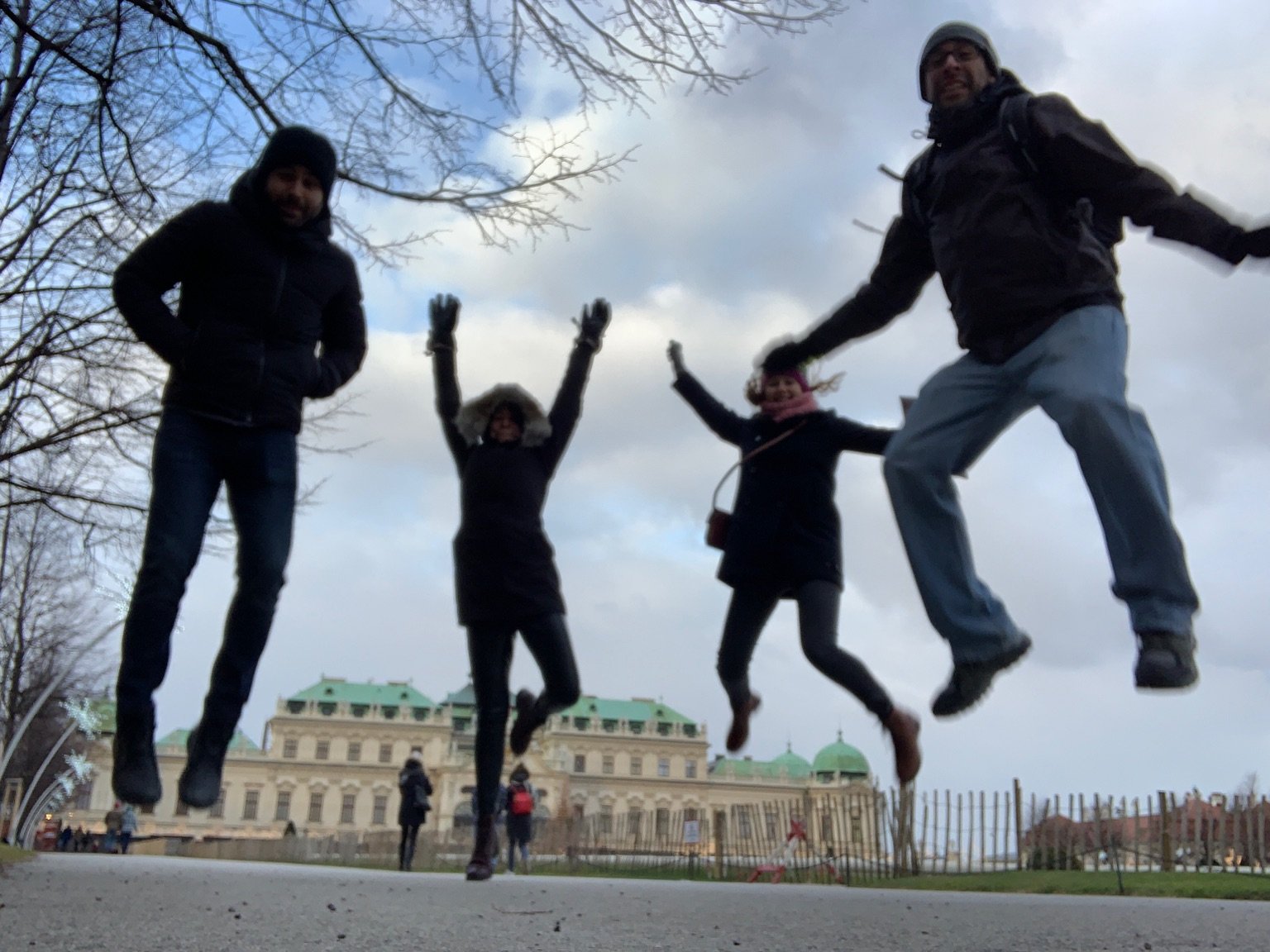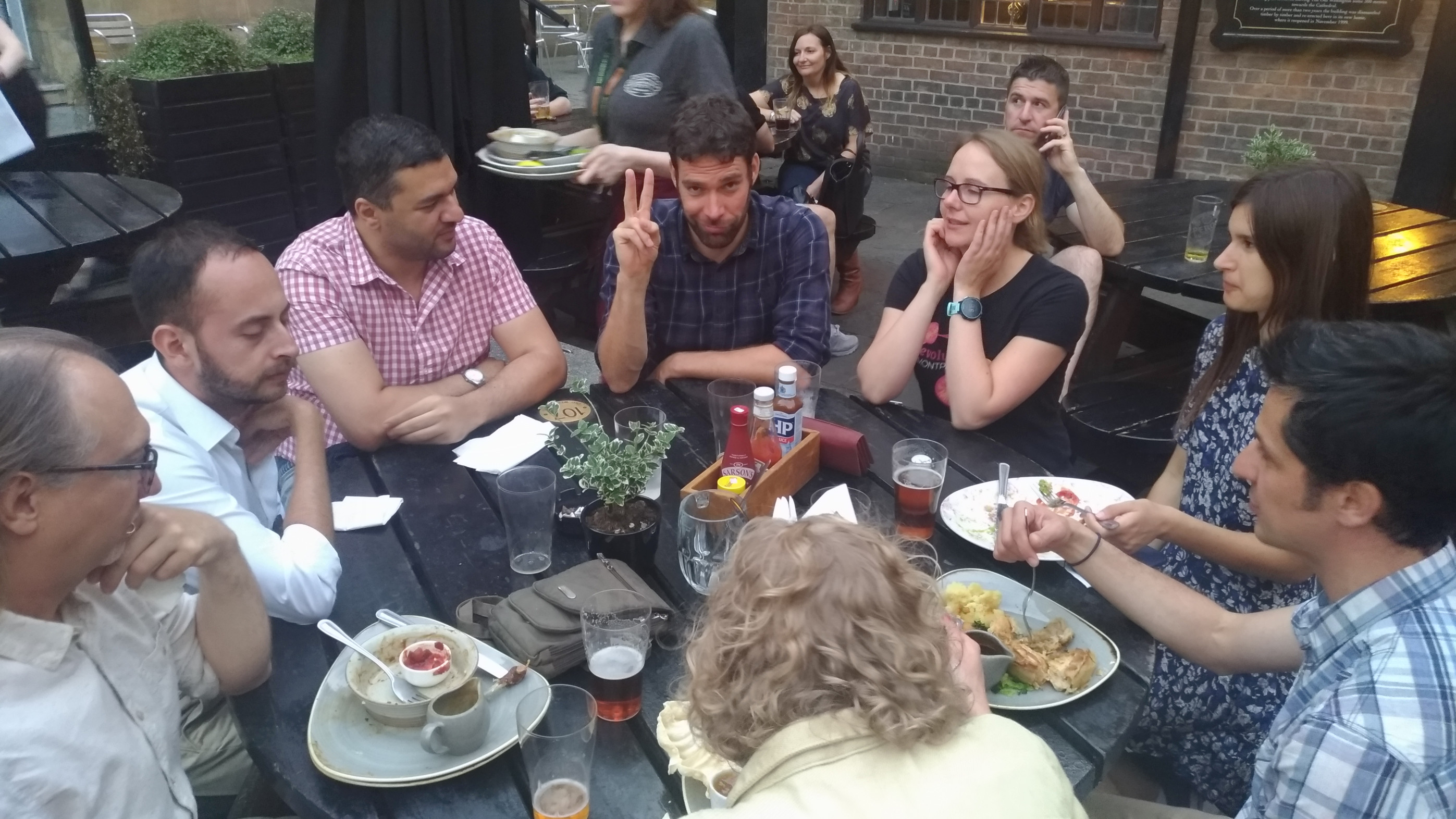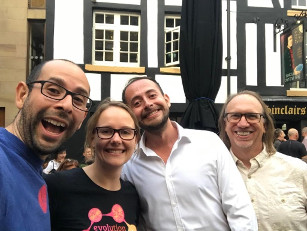2020
21 May 2020. Following my “giant” (virus) dreams!
I am very happy to announce that I have recently moved to Vienna (Austria) and started a new Postdoc at the Centre for Microbiology and Environmental Systems Science at the University of Vienna! Here, I started working on a project to study the evolutionary relationships between giant viruses and their hosts. I am extremely excited to work in this project as the recently discovered giant viruses question all we know about viruses. They have larger than usual genome sizes, larger than usual particle sizes, and many of the giant virus genomes encode translation-related genes. How cool is that! Beside all these weird features, for many of the giant viruses we do not know precisely which hosts they infect in nature. By using experimental and computational approaches to study these giant viruses, I will contribute to a better understanding of factors determining host range and the evolutionary processes shaping giant virus genomes.
The University of Vienna has been great to hire me in the middle of the COVID-19 pandemic! On the grounds, I have started working in home office. This might not be the ideal situation to start a new project in a new research group. But so far, I have been able to manage well. Despite the major impact on society, the pandemic has shown us that some jobs (e.g. many twitter jobs) can be effectively done in home office (especially when no kids are present at home). For many (lucky) scientists, home-office came down to data analysis, article writing and grant writing. For me it came down to project planning, data analysis, and finishing up articles from old projects. This has already led to the acceptance of two articles:
- One was part of the master project of Fanni Borvető (now a PhD student), where she computationally examined the genomic impact of a recombination event between distantly related papillomaviruses: Fanni Borvető et al. 2020.
- The other was part of a collaboration, for which Dr. Maria Guadalupe Flores-Miramontes (back then a PhD student) visited us in Montpellier for a duration of six months. During this time, we have helped María Guadalupe setting up a personalised pipeline for papillomavirus screening in mass sequencing data: Flores-Miramontes MG, et al. 2020.
Moreover, my previous supervisor (Ignacio G. Bravo) and I have submitted another article where we describe a phylogenetic dating study to analyse evolutionary events that occurred during PV evolution, as well as to estimate speciation and evolutionary rates. As you can see, this was quite a productive lockdown, but I hope we can get back to normal life soon!
6 January 2020. First review paper out!

With a little bit of a delay, I am happy to announce that at the end of 2019 Mark Zwart and I published a review paper "On the stability of sequences inserted into viral genomes". Although Mark is more experienced, for me this is my first review paper!
In this review, we consider the stability of inserted sequences and the dynamics of their removal from virus genomes from an evolutionary perspective. First, we provide an overview of empirical results which shed light on insert-sequence stability for viruses, based on the Baltimore classification. Second, we present some conceptual considerations pertaining to sequence stability, identifying important parameters for understanding and potentially predicting stability. We identify theory and experiments that point toward viable strategies for mitigating the rapid loss of inserted genes, and point out key questions that should be addressed in future research. We argue that virus genome organization has a large impact on the stability of inserted sequences, whilst stability is a complex trait that can depend on environmental conditions.
1 January 2020. Happy New Year!

First of all I want to wish everyone all the best for 2020! My wish for this year is to all work together and get a step closer to combat one of the many problems we have in the world: climate change. It seems that most of us need to be directly affected by the consequences of climate change until we believe it actually exists (for example the bushfires in Australia that are currently happening). In most cases an a posteriori realization is too late! Small gestures, like changing your diet, changing your travel behavior, buy less clothes and banning single use (or all) plastics at your home are a good start. Please see the following links with examples on how you can act on climate change:
Article in BBC Future
YouTube video from ClimateAdam
YouTube video from Greta Thunberg and George Monbiot
2019
30 July 2019. Back from the SMBE2019 conference: cool science and de novo friends

This year the SMBE conference took place in Manchester (England). I travelled along with a PhD student from my lab, Fanni Borvető (seen in the top picture next to me having dinner with some people we met at the conference). Even before the start of the conference, I already met a fellow scientist while attending the Manchester walking tour (Neal; on the right in the small picture). From this point on, networking did not stop and during and after conference hours I met a lot of great people and made a lot of de novo friends. My contribution to the conference was a presentation of our recent published work on genome plasticity in papillomaviruses and de novo emergence of E5 oncogenes (10.1093/gbe/evz095). As I am new on the topic, I was very glad that the organisers of the session "Origins, Evolution and Function of Novel Genes" made plans to have dinner with the people that participated in it. Also, I had the opportunity to take part in the SMBE mentor/mentee program. I mentored Axel Guzmán Solís from the LIIGH-UNAM (México), who was awarded an SMBE undergraduate travel award (Axel; on my right in the small picture). All and all, another great SMBE conference, until the next one!
